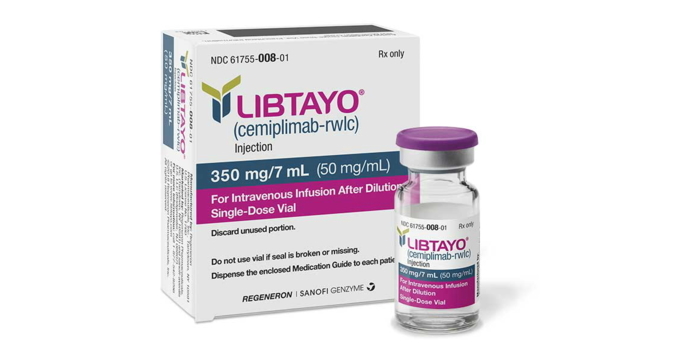Sanofi/Regeneron's Libtayo set for new skin cancer use

Sanofi and Regeneron plan to file their cancer immunotherapy Libtayo (cemiplimab) in a new indication following supportive findings from a phase 2 trial in a hard to treat group of skin cancer patients.
The companies said this is the first time a medicine has shown a clinical benefit in basal cell carcinoma patients who have progressed or are intolerant to an hedgehog inhibitor.
Results from the phase 2 trial were published at a late-breaking presentation at the European Society for Medical Oncology (ESMO).
Sanofi said the results are strong enough to support a new indication in the US and EU for Libtayo, a PD-1 inhibitor that is already FDA-approved in advanced cutaneous squamous cell carcinoma.
Libtayo was first approved in 2018, several years after Bristol-Myers Squibb and Merck & Co began to gain market share in many oncology indications with their rival PD-1 drugs Opdivo (nivolumab) and Keytruda (pembrolizumab), respectively.
This has left Sanofi searching for niches that are unexplored by its main rivals in cancer immunotherapy, and data revealed at ESMO suggests it may have found such a foothold.
Objective response rate (ORR) was 31% among 84 Libtayo-treated patients with a median follow-up of 15 months. This included a 6% (n=5) complete and 25% (n=21) partial response rate.
This is an increase from the ORR of 29% the company shared in May and includes two responses that were confirmed after an initial data analysis.
As for data cut-off, the median duration of response and median overall survival had not yet been reached.
At one-year, 85% of responses were ongoing and the probability of progression-free survival was 57% and the probability of overall survival was 92%, Sanofi said.
No new Libtayo safety signals were observed. The most common treatment-related adverse events (AEs) were fatigue (25% of patients), pruritus (14%) and asthenia (14%).
Grade 3 or higher treatment-related AEs that occurred in at least 2 patients were colitis (5%), fatigue and adrenal insufficiency (2%). Fourteen patients (17%) discontinued treatment due to treatment-emergent AEs.
Libtayo is being jointly developed by Regeneron and Sanofi under a global collaboration agreement.












